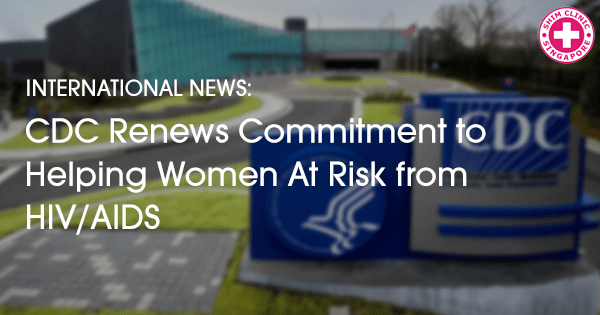On March 10, 2016, people banded together to promote awareness for the women and girls who suffer from HIV/AIDS. On this particular National Women and Girls HIV/AIDS Awareness Day, the United States Center for Disease Control (CDC) issued a statement about the theme for the year, “The Best Defense Is a Good Offense.” The new slogan represents the proactive angle being adopted by the Office of Women’s Health, Department of Health and Human Services, and the CDC throughout the coming months. The struggles of women and girls HIV and AIDS aren’t limited to the U.S.; they cross borders and oceans, affecting women and girls in Singapore as well.
Preventative Care
The United States CDC is pursuing several different prevention avenues to address the onset of HIV/AIDS in the female population. Some of these endeavours could be equally effective when employed here in Singapore.
One way to slow the progress and transmission of the disease is to effectively communicate with at-risk women and girls. Girls and young women who live in poverty or have limited access to health education represent an at-risk group, as do female drug users and transgender women. Community organizations must find better ways to reach these women with information about behavioural health and personal care systems that can help them avoid contracting these devastating diseases.
Post-Exposure Treatment
If preventative care measures do not keep a woman from being exposed, she can pursue HIV PEP treatment, such as the treatment provided at Shim Clinic in Singapore. This treatment may be able to halt an HIV infection if the woman acts immediately and pursues HIV PEP within 72 hours of her exposure. At Shim Clinic, each client’s privacy and confidentiality are maintained as our health care professionals evaluate every situation and recommend the next step in treatment.
Of course, if women have not been educated about the risks and the need for immediate action, they may not realize how fast they need to move in order to prevent infection. The HIV PEP medication can only be effective if it’s administered within a few days (72 hours) of the exposure event, to a person whose HIV test has so far been negative. If the test is already coming back positive, the exposure has resulted in HIV infection and HIV PEP treatment is no longer applicable.
Ongoing Research
Researchers in the United States are investigating specific microbicides, which are gels or creams that a person could apply anally or vaginally before engaging in sexual behaviour. These substances might have the potential to limit or negate the healthy person’s exposure to HIV/AIDS through sexual contact. However, the research is still ongoing, and no such safe, research-based gels or creams are currently available in the United States, Singapore, or other nations.
Singapore’s Success in Battling HIV/AIDS
So far, Singapore has achieved a measure of success in fighting AIDS among women. Beginning in 2004, when the prime Minister appointed women to significant positions on his team, the political and social stance of women in Singapore has improved. In 2005, the HIV Women and Children’s Fund came into being, overseen by Dr. Balaji Sadasivan. Thanks to this fund, women and children affected by the disease have direct access to the public healthcare they need. There are programs like Action for AIDS, the Association for Women & Research (AWARE) and other groups that strive to reach high-risk segments of Singapore society. With these proactive steps and the treatment available through locations like Shim Clinic, the outlook for women and girls in Singapore is becoming brighter.

